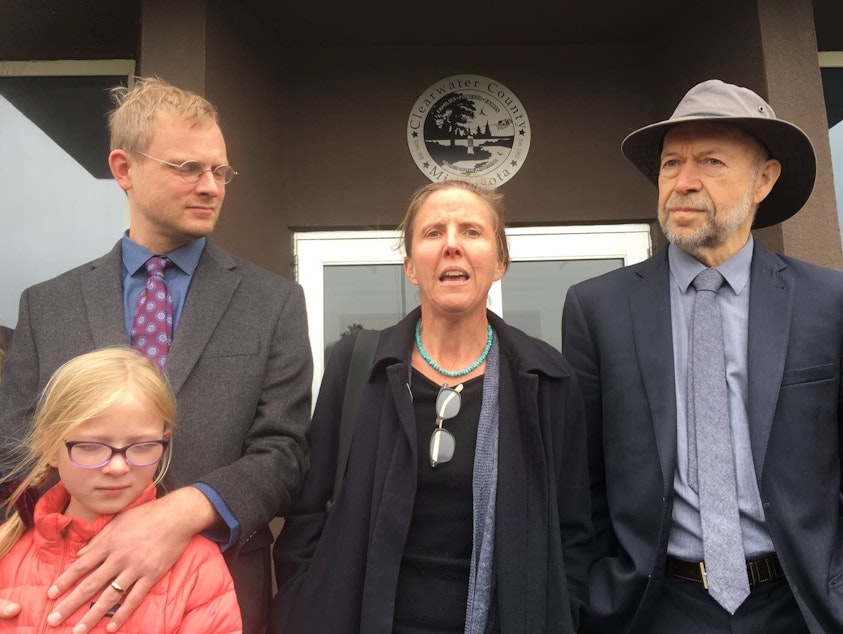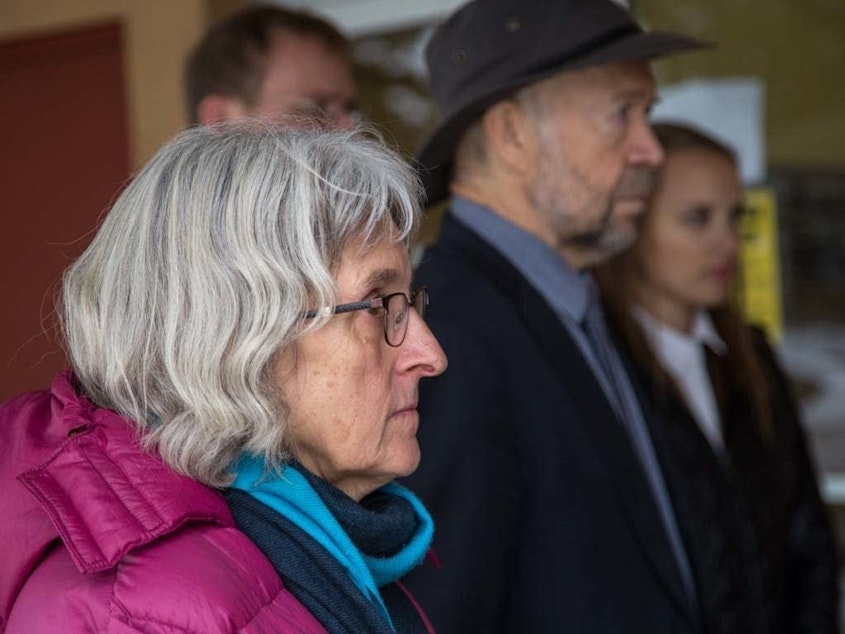In surprising twist, Seattle activists acquitted in Minnesota

A judge in Clearwater County has acquitted three pipeline protesters from the Seattle area just hours into the first day of testimony.
An unusual and high-profile trial in northwestern Minnesota came to a surprisingly quick end Tuesday when a state judge acquitted three climate activists of damaging an oil pipeline.
Both the prosecution and defense cases fizzled, leaving disappointment on both sides.
The case dates back to October 11, 2016, when Annette Klapstein and Emily Johnston used bolt cutters to cut through chains and padlocks at a valve site for two oil pipelines in Clearwater County.
Then Ben Joldersma called Enbridge, the pipelines' owner, and warned the company to shut them down, or they would. And he live-streamed it on Facebook.
Read the story on Minnesota Public Radio
"I'm calling to inform you, that when I hang up this phone, we are closing the valves," he said in a Facebook live stream. "Please shut down these two pipelines now, for safety and for our future."
Clearwater County attorney Al Rogalla played the video for a jury Tuesday morning. He showed the bolt cutters, and the cut chains and padlocks, as evidence. He'd charged the three defendants with felonies; two of them for damage to a critical public service.
After Rogalla rested his case, defense attorneys asked the judge to acquit the three defendants. They argued the state had not sufficiently proven the defendants had caused criminal damage to the pipelines.

Read: Seattle women: 'Yes, we committed a crime, but we did it' to fight climate change
And to everyone's surprise, state district court judge Robert Tiffany agreed.
After, on the steps of the courthouse, Annette Klapstein, 66, said she was ecstatic. But the retired attorney from the Seattle area also said she's disappointed they didn't get to tell their story to a Clearwater County jury.
"We did everything in our power to make sure that this was a safe action and we did this to protect our children and all of your children from the devastating effects of climate change," Klapstein said.
The activists were prepared to present a rare argument called the necessity defense— that their actions were justified to avert the greater harm of climate change.
Only a few climate activists have been allowed to argue the defense to a jury before.
Fellow defendant Emily Johnston, 52, also was ambivalent. She escaped a potential prison term of several years, but was willing to take that risk to put on the kind of trial they'd prepared.
"We did this action two, almost two years ago to the day, Thursday will be the second anniversary, because the problem of climate change is so urgent that we have to start shutting down tar sands pipelines down now," Johnston said.
• UN report on climate change: What it means for Minnesota
Among the initial jury pool of some 30 people, many had connections to the area's pipeline industry or doubted the existence of climate change.
The vast majority said they did not consider it acceptable to violate the law for a moral belief.
Editor's note: This story first appeared on MPR News.



